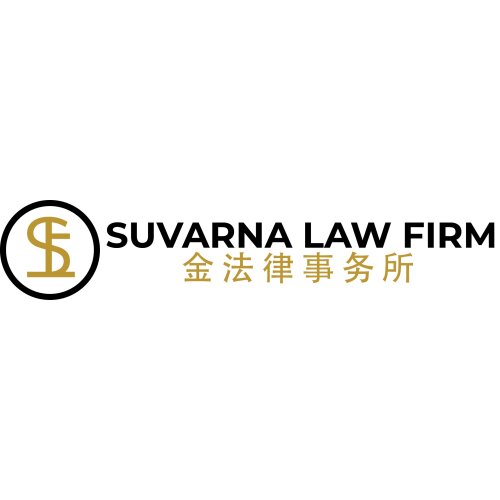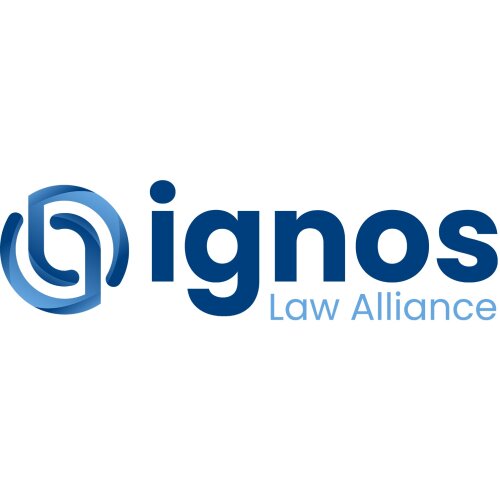Best Employment & Labor Lawyers in Indonesia
Share your needs with us, get contacted by law firms.
Free. Takes 2 min.
Or refine your search by selecting a city:
List of the best lawyers in Indonesia
About Employment & Labor Law in Indonesia
Employment and labor law in Indonesia is governed by numerous regulations and policies that protect workers' rights, promote fair employment practices, and ensure harmonious industrial relations. The primary legal framework is the Manpower Law (Law No. 13 of 2003 on Manpower) alongside various government regulations and presidential decrees. These laws are designed to balance the interests of employers and employees while encouraging economic development. Key areas of focus include working conditions, minimum wage, health and safety, worker termination, and dispute resolution.
Why You May Need a Lawyer
There are several common situations in employment and labor where you may require legal assistance:
- **Employment Contracts:** Drafting, reviewing, or negotiating contracts to ensure compliance with local laws and protecting your rights.
- **Workplace Disputes:** Resolving conflicts such as wrongful termination, discrimination, harassment, or salary disputes.
- **Regulatory Compliance:** Advising businesses on adhering to labor regulations during hiring, termination, and other HR practices.
- **Collective Bargaining:** Assisting unions or employers during talks to ensure fair terms are agreed upon.
- **Litigation:** Representing employees or employers in court or arbitration if disputes escalate beyond negotiation or mediation.
Local Laws Overview
Key aspects of Indonesian employment and labor law include:
- **Working Hours:** The law mandates a maximum of 40 working hours per week, with provisions for overtime payments.
- **Minimum Wage:** Set annually by regional authorities, the minimum wage varies by province and sector.
- **Employment Termination:** Regulations require valid reasons for termination and stipulate severance pay and other entitlements.
- **Leave Entitlements:** Employees are entitled to annual leave, maternity leave, sick leave, and other types of leave under specific conditions.
- **Occupational Health and Safety:** Employers must ensure safe working environments and comply with health standards to prevent workplace accidents.
Frequently Asked Questions
1. What constitutes a lawful reason for termination in Indonesia?
Lawful reasons may include incompetence, misconduct, breach of contract, or redundancy. A proper procedure must be followed to ensure legality.
2. How is the minimum wage determined in Indonesia?
The minimum wage is determined by provincial governments based on inflation, economic growth, and the local cost of living.
3. Are foreign workers allowed in Indonesia?
Yes, but they need a work permit and must comply with Indonesian immigration and labor regulations.
4. How are disputes between employers and employees resolved?
Disputes can be resolved through mediation, conciliation, arbitration, or in labor court if necessary.
5. What is the policy on overtime work and compensation?
Employees are entitled to overtime pay, typically at a higher rate than regular hours, if they work beyond the 40-hour weekly limit.
6. What are employers' obligations regarding workplace safety?
Employers must provide a safe working environment, conduct regular safety training, and adhere to occupational health and safety regulations.
7. Can employees strike in Indonesia?
Yes, but strikes must follow legal procedures including notification and negotiation stages before occurring.
8. Are there specific protections for maternity leave?
Yes, female employees are entitled to maternity leave and related benefits under Indonesian law.
9. What happens if an employer fails to pay wages?
Employees can file a complaint with the local labor office, and legal action may be taken to recover unpaid wages.
10. How can an employment contract be terminated?
Contracts can be terminated mutually, upon expiration, by resignation, or through lawful dismissal, all following statutory requirements.
Additional Resources
For further information and assistance, consider contacting the following resources:
- **Ministry of Manpower:** Provides guidance on employment standards and practices.
- **Indonesian Trade Union Confederation:** Offers support for labor rights and dispute resolution.
- **Legal Aid Institutes:** Provide assistance and representation, especially for disadvantaged groups.
- **Local Chambers of Commerce:** Can offer advice and mediation services for employers and businesses.
Next Steps
If you need legal assistance in employment and labor matters in Indonesia, consider the following steps:
- **Consult a Lawyer:** Identify a lawyer specializing in employment law to discuss your situation and obtain tailored advice.
- **Gather Documentation:** Collect all relevant documents, such as contracts, correspondence, and records, before consulting a legal professional.
- **Understand Your Rights:** Familiarize yourself with your legal rights and obligations under Indonesian law.
- **Seek Mediation:** For workplace disputes, consider pursuing mediation as a first step to resolve issues amicably before escalating to legal action.
- **Stay Informed:** Keeping updated with the latest laws and regulations will help you remain compliant and informed of your rights as an employee or an employer.
Lawzana helps you find the best lawyers and law firms in Indonesia through a curated and pre-screened list of qualified legal professionals. Our platform offers rankings and detailed profiles of attorneys and law firms, allowing you to compare based on practice areas, including Employment & Labor, experience, and client feedback.
Each profile includes a description of the firm's areas of practice, client reviews, team members and partners, year of establishment, spoken languages, office locations, contact information, social media presence, and any published articles or resources. Most firms on our platform speak English and are experienced in both local and international legal matters.
Get a quote from top-rated law firms in Indonesia — quickly, securely, and without unnecessary hassle.
Disclaimer:
The information provided on this page is for general informational purposes only and does not constitute legal advice. While we strive to ensure the accuracy and relevance of the content, legal information may change over time, and interpretations of the law can vary. You should always consult with a qualified legal professional for advice specific to your situation.
We disclaim all liability for actions taken or not taken based on the content of this page. If you believe any information is incorrect or outdated, please contact us, and we will review and update it where appropriate.
Browse employment & labor law firms by service in Indonesia
Indonesia Attorneys in related practice areas.
Browse employment & labor law firms by city in Indonesia
Refine your search by selecting a city.
















